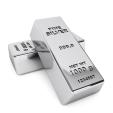China set to win Asia gold pricing race with new exchange
Shanghai (Sept 18) China launched a gold exchange open to foreign players for the first time on Thursday, putting the world's top bullion buyer on track to win a race to set the benchmark price in Asia.
The launch of the Shanghai Gold Exchange's international bourse with yuan-denominated contracts is the first in a slew of bullion contracts expected in Asia, including Singapore and Hong Kong, before the end of the year as the region aims to have pricing power as the top consumer of the metal.
China's efforts have the best chance of success, say market players, as it has a huge home market. With imports of over 1,000 tonnes of gold last year and local production of about 400 tonnes, China consumes over a third of global supply.
A successful take-up of the exchange could see gold priced and paid for in yuan rather than the U.S. dollar, challenging the traditional dominance of London and New York in trading.
The exchange's launch is also a big boost for the free trade zone, where the bourse is located. Despite being touted as a test bed for financial reforms, the zone has struggled to show significant progress in its first year.
"The launch of the gold contracts will increase China's influence and improve price discovery," China central bank governor Zhou Xiaochuan said at a launch event in Shanghai.
"This will also accelerate the development of Shanghai's free trade zone and is an important milestone for the opening up of China's financial markets."
HSBC, MKS Group, Bank of China, Industrial and Commercial Bank of China and Bank of Communications conducted the first trades across the three new contracts launched on the bourse.
Asia, which accounts for about two thirds of global gold consumption, has long been clamouring to gain pricing power, although previous efforts have failed to win investor backing.
SGE's global bourse is China's biggest step towards being a price-discovery centre by allowing foreign players to take part in the domestic market and by letting them trade in yuan.
"What we will see over time is the move towards pricing of gold and other commodities in offshore RMB," said Jeremy East, global head of metals trading at Standard Chartered.
"This potentially has global implications, for instance any producer selling gold into China would be paid in RMB rather than in dollar, which has been the traditional pricing currency hitherto."
The long-used pricing benchmark for gold, the so-called London "fix", has come under regulatory scrutiny due to allegations of manipulation, adding to China's push to have a bigger influence on global pricing.
While physical demand provides underlying support for gold, prices are largely driven by speculative trade. China's push for an international physical exchange means physical demand could have a stronger influence.
The contracts on the new exchange will be physically settled and will be traded between bullion banks, refiners, producers and trading houses.
Other centres are preparing similar contracts. CME Group is set to launch a physically deliverable futures contract in Hong Kong later this year, while the Singapore Exchange will launch a wholesale contract. Dubai is also preparing to launch a spot contract.
The success of these contracts depends heavily on the liquidity they can garner.
"China's gold market advantage lies in the strength of its domestic market," said Jiang Shu, an analyst with Industrial Bank, one of the few banks allowed to import gold into China.
The exchange attracted strong interest from foreign players, with Australia and New Zealand Banking Group, Standard Chartered, Goldman Sachs, and refiners Metalor and Heraeus among the initial set of about 40 trading members.
Source: Reuters













